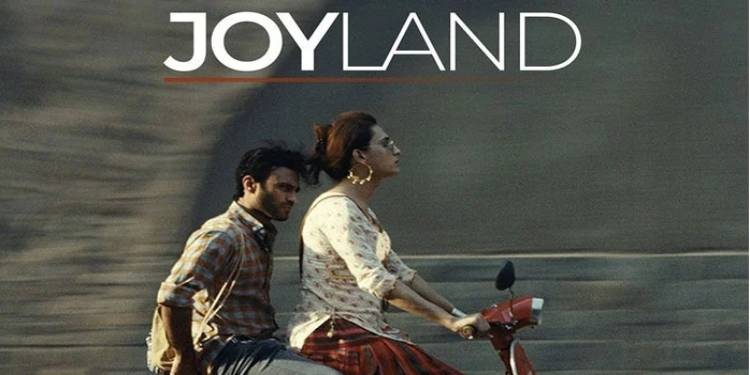
Joyland, which premiered at Cannes last May as the first Pakistani feature film ever, went on to win the Uncertain Regard Jury Prize as well as the Queer Palm for its intimate portrayal of a society that isn't often seen on international screens.
One of the year's biggest success stories in world cinema, what started as a tiny independent production among friends at Columbia University's graduate film program, evolved into a groundbreaking picture of LGBT desire in a Muslim country.
Saim Sadiq, a 32-year-old first-time director, drew inspiration from his own coming-of-age experience to tell the narrative of young Pakistanis attempting to break free from the rigid constraints of gender and tradition. "I was attempting to find some type of catharsis by inventing characters that were going through the same things as myself. It was a rigidity I was born into, the lines of what you are supposed to do as a guy and as a girl," he said.
A multigenerational family residing in a common home under the tutelage of a harsh, widowed patriarch is the subject of the ensemble story Joyland. Haidar, a sympathetic and soft-spoken young man who has struggled to find employment and frequently hears criticism from his father for failing to uphold his duties as a spouse and a man, is one of the movie's main characters. Finally landing a job as a backup dancer in a seedy dance theatre, Haidar is then hired by the talented artist Biba, who is portrayed by trans actress Alina Khan.
Haidar's life is turned upside down by her sexuality and confidence, and as he falls in love with the celebrity, he starts to see his city and his options in a completely new way.
Despite the controversy, the movie is already a modest international success as it opens in American theatres. "The conversation surrounding the movie is the conversation, and you really can't control it," Sadiq said. The fact that the theatre is usually crowded whenever the movie is shown anywhere is just encouraging.
One of the year's biggest success stories in world cinema, what started as a tiny independent production among friends at Columbia University's graduate film program, evolved into a groundbreaking picture of LGBT desire in a Muslim country.
Saim Sadiq, a 32-year-old first-time director, drew inspiration from his own coming-of-age experience to tell the narrative of young Pakistanis attempting to break free from the rigid constraints of gender and tradition. "I was attempting to find some type of catharsis by inventing characters that were going through the same things as myself. It was a rigidity I was born into, the lines of what you are supposed to do as a guy and as a girl," he said.
A multigenerational family residing in a common home under the tutelage of a harsh, widowed patriarch is the subject of the ensemble story Joyland. Haidar, a sympathetic and soft-spoken young man who has struggled to find employment and frequently hears criticism from his father for failing to uphold his duties as a spouse and a man, is one of the movie's main characters. Finally landing a job as a backup dancer in a seedy dance theatre, Haidar is then hired by the talented artist Biba, who is portrayed by trans actress Alina Khan.
Haidar's life is turned upside down by her sexuality and confidence, and as he falls in love with the celebrity, he starts to see his city and his options in a completely new way.
Despite the controversy, the movie is already a modest international success as it opens in American theatres. "The conversation surrounding the movie is the conversation, and you really can't control it," Sadiq said. The fact that the theatre is usually crowded whenever the movie is shown anywhere is just encouraging.

